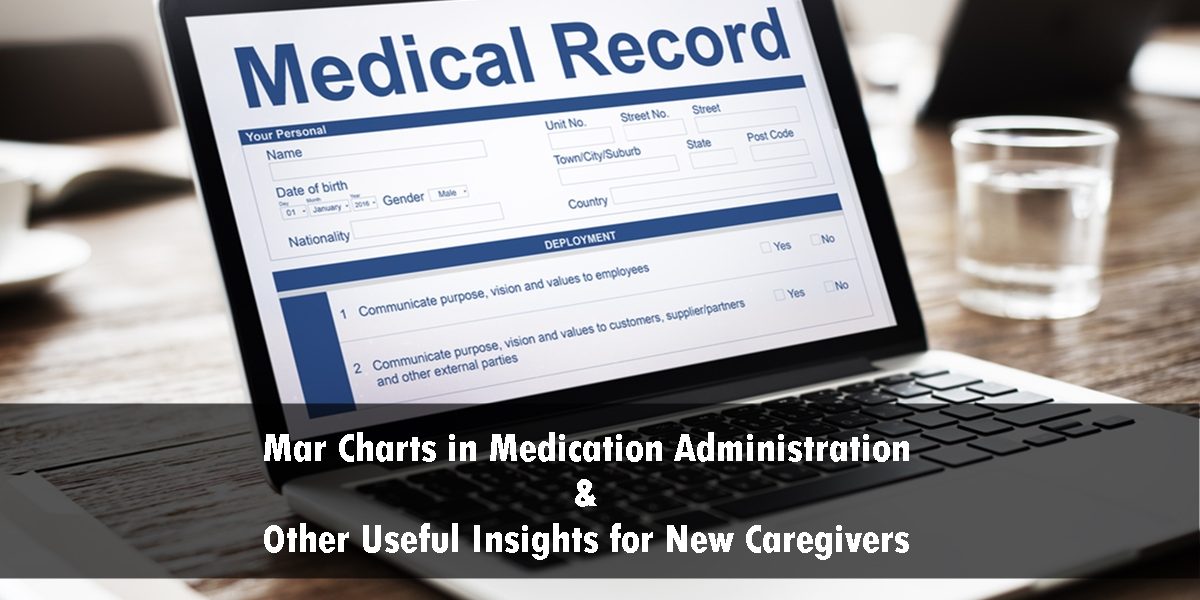Medication administration is a major responsibility for caregiving staff. They need to be skillful at administering medications. Also, they should be aware of the expected effects of the drugs administered and their possible side effects. Here we discuss a few useful insights for new caregivers on medication administration, MAR charts and other important guidelines.
- There are certain basic guidelines that caregivers must follow:
- Washing hands before and after administering a medication
- Always checking the expiration date on the label
- Following the “8 Rights of medication administration”
- Preparing the medicine and administering it in a well-lit area
- Administering medications in an area free from distractions
- Checking for allergies before administering any medication
- Administering drugs ordered by a licensed physician
- Being completely familiar with the drug being administered
- Administering only those medications that they have prepared for administration
- Not leaving medication ( after it’s prepared for administration) unattended
- Being careful while transporting the medication to the resident
- Filling medication notes detailing the dose, route and time exactly as administered. If the care facility has implemented eMAR, it becomes easier for the caregiving staff to fill in the details. Also, with eMAR it becomes easy for supervisors to access the medication records anytime they want.
- When a medication error occurs, follow these guidelines:
- Firstly, recognise that an error has been made
- It’s important to stay calm and analyse the patient’s condition. Check for adverse reactions to the medication
- Immediately report the error
- Document the details of the medication error in the MAR nursing chart or eMAR. These details must be added:
– The type of error
– The resident’s reactions
– Steps taken to correct the error
– Date, time, name of the resident and the name of the person who administered the drug
- Caregivers must be aware of risky behaviours when it comes to medication administration:
- Don’t hold on to dangerous habits such as using abbreviations, acronyms and symbols in written communications. For instance, handwritten µg on prescriptions can be often mistaken as mg. Or handwritten q.o.d. can be interpreted as every day.
- In care home facilities, often the supervisors audit random MAR charts to ensure that confusing abbreviations that can cause overdose or other medication errors are not being used.
- When a resident refuses medication, it needs to be properly returned or disposed of:
- The caregiving staff has to encourage the resident to take the prescribed medications. However, the resident has the right to refuse it. If a resident refuses to take medication, it must be returned or disposed of. If the medication packed is unopened, the caregiving staff must return it to the dispensing unit. Some drugs when returned require a witness. If the package has been opened, the drug must be disposed of, using special procedures. Note: medications are not disposed of in the sewer system.
- It’s important to document the resident’s refusal to take medication. Note the reasons why the resident is refusing to take the medication in the MAR chart or eMAR. Also, if a previously refused medicine is given later, document it with the actual time of administration.







